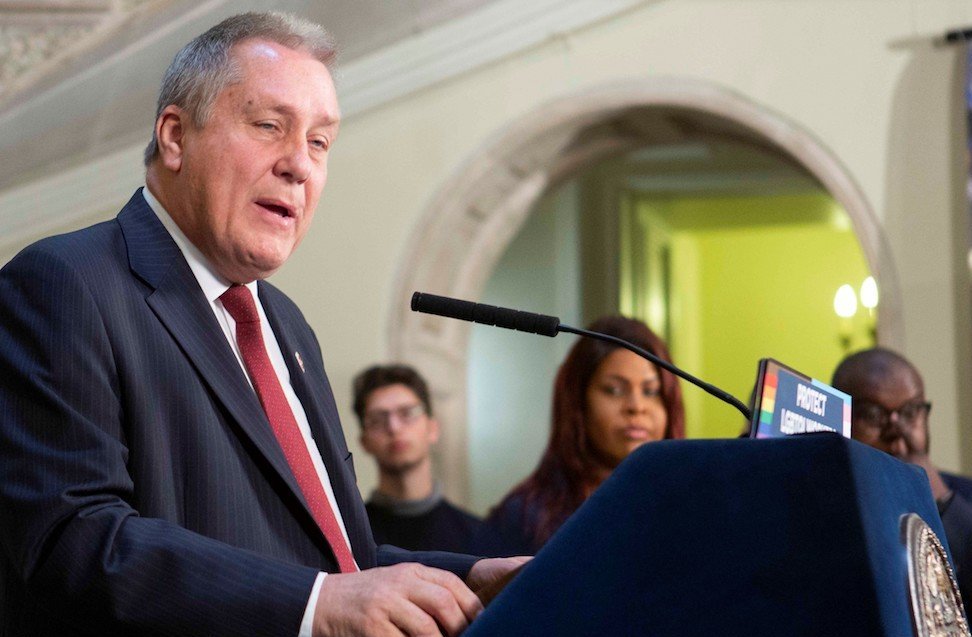Councilman Daniel Dromm introduced a bill to end the use of solitary confinement in all New York City jails on Thursday, Dec. 10.
The bill, Intro 2173, presents the culmination of more than 10 years of advocacy. Dromm has worked closely with criminal justice experts, alternatives to incarceration activists, social service providers, medical professionals and colleagues in government to bring unprecedented reform to the justice system.
“History will not be kind to us if we turn back from the clarion call: Solitary confinement must end now,” said Dromm. “I am here to tell the families of those who did not survive: your suffering has not been in vain. I am here to tell the survivors that we have heard your anguished cries. We would not be here if it were not for you who have endured the unendurable, survived the unsurvivable and come out on the other side to tell us what should already be apparent: that solitary is torture. It has no place in our city, no place in our state and no place in our country.”
If the law were to pass, nearly all individuals detained in NYC jails would be guaranteed 14 hours of time out of their cells. The Department of Correction (DOC) would be required to document all instances of deescalation, and their records made available to lawmakers and the general public.
But, the bill would allow correction officers to isolate individuals for the sole purpose of deescalating violent conflicts.
The bill states no incarcerated individual can be placed in solitary confinement, unless it’s necessary in order to deescalate immediate conflict for a maximum of four hours.
The bill also outlines ways to minimize the use of restrictive housing, which is an area that separates an incarcerated person from the rest of the general jail population when there is a heightened threat to the safety and security of staff as well as other incarcerated people.
The bill states an individual can’t be placed in a restrictive housing unit until the DOC holds a hearing. That individual has the right to be represented by a legal counsel, which will be provided by the DOC if they don’t have their own during the hearing. It adds that no incarcerated person can be placed in the restrictive housing for longer than four months in any 12-month period, and would be reviewed every 15 days to determine whether the person continues to present a significant threat to safety and security outside of the housing.
Additionally, those placed in restrictive housing may interact with others outside of restrictive housing and receive the same amenities.
The bill is ultimately about creating humane conditions for all people inside NYC jails, including corrections officers and other city employees, according to Dromm.
“Solitary confinement is not just a violation of the basic human rights of the individual subjected to it. It is a horrific practice whose negative impact reverberates throughout our entire society,” said Dromm. “Correction officers and their supervisors are forced to dehumanize the incarcerated and desensitize themselves in the process, all the while making work conditions more dangerous. Surely there are violent individuals held in our jails — but the use of solitary only makes individuals more violent. This is not good criminal justice policy. NYC must seize this opportunity to make things right and to lead.”
This summer, Mayor Bill de Blasio created a working group in order to find a way to end solitary confinement, according to The City. He noted the case of Layleen Polanco, a transgender woman who died in solitary confinement at Rikers Island in 2019. Polanco’s death renewed calls for the end of the punitive practice from advocates and several politicians.
The Council’s Committee on Criminal Justice held a public hearing for Dromm’s bill on Friday, Dec. 11.




































